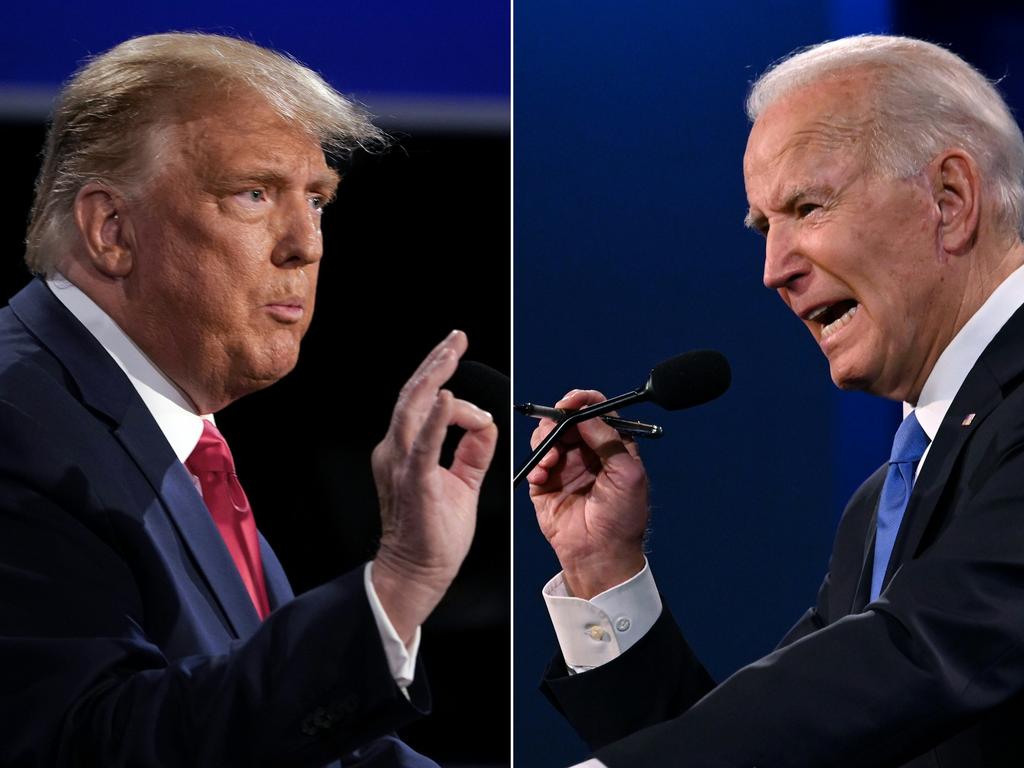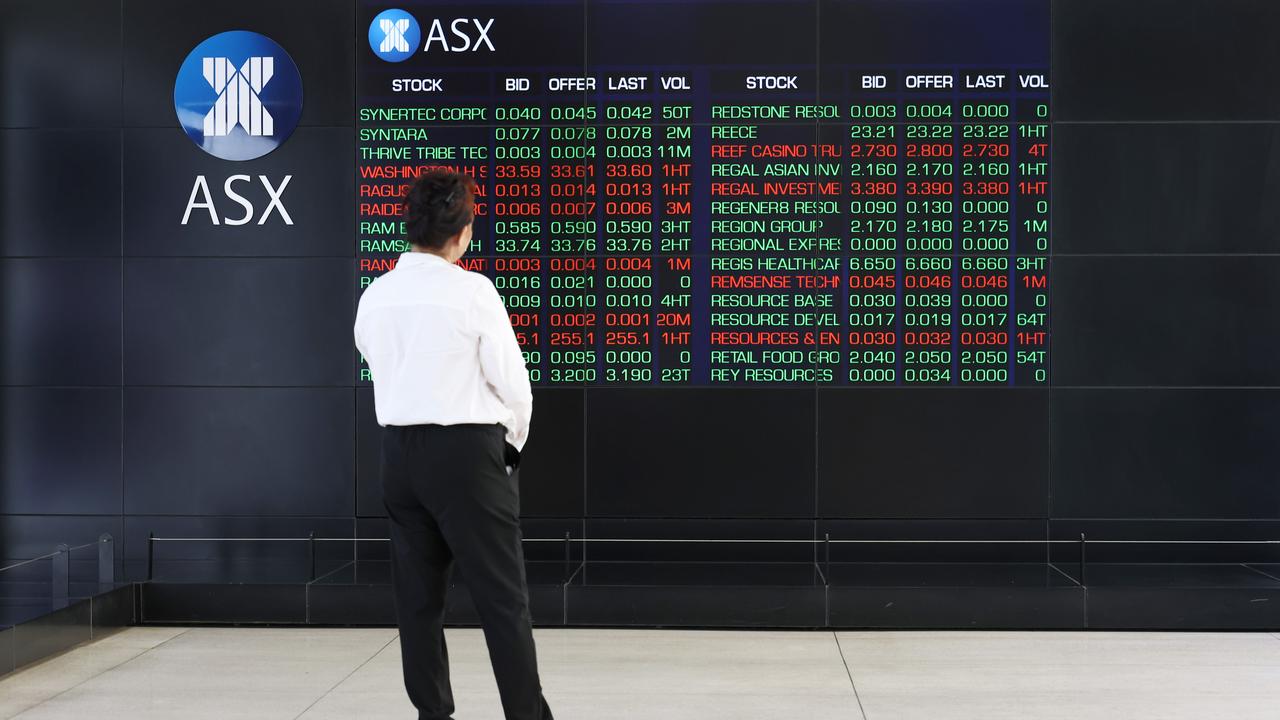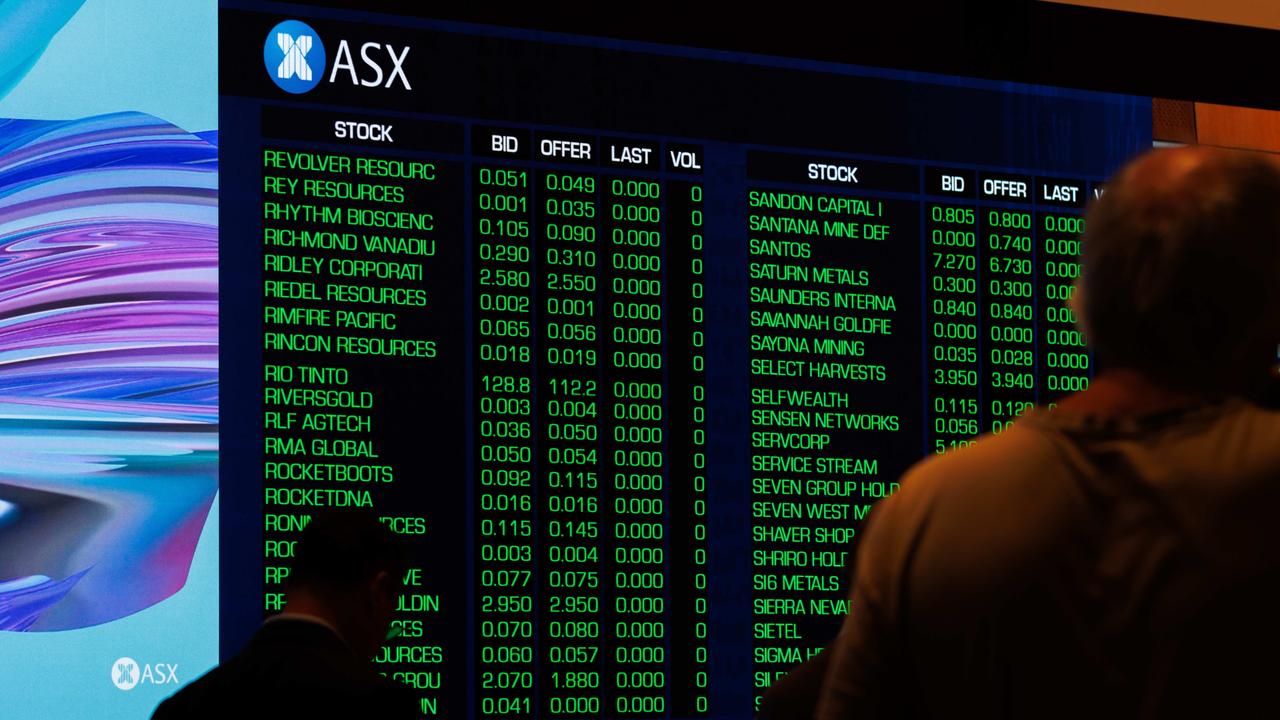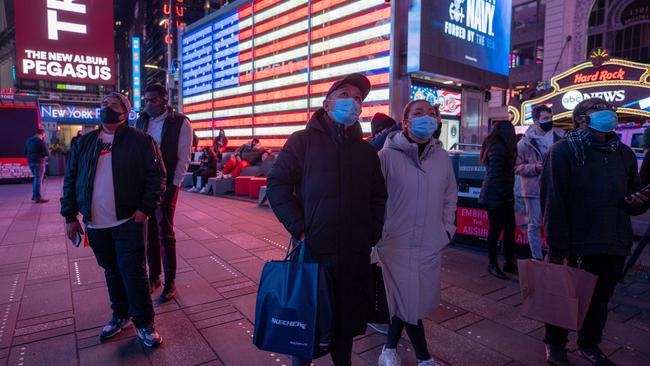
The worst result for the stockmarket is protracted delays in declaring the next US president — but if Donald Trump falls over the line that may be good for US stocks but it would be a negative for Australia and global markets.
It is a big call to say the US market would rally with Trump’s return because he is a known quantity, especially after Wall Street rallied earlier in the week on the expectation that the Democrats would win the house and the presidency, which was taken to mean more economic stimulus.
Trump has already delivered for US stocks, which have risen by 57 per cent in his first term, but his handling of the COVID-19 pandemic and his overall administration makes you wonder just what sort of a known quantity he is.
His victory would raise the prospect of more trade tension with China, increased protectionism and a stronger US dollar, none of which holds much appeal for Australia or indeed US investors.
There is enough tension between Australia and China without the US raising its own concerns.
Any relief rally on a result would probably give way next year to longer-term concerns on trade tensions and divisions evident in the US society.
In the interim with a result booked in, the market would focus on more immediate indicators such as the coming Black Friday retail sales after Thanksgiving Day that will provide a guide to US consumer confidence.
Before any vaccine is discovered, COVID concerns will govern the stockmarket’s fortunes.
Banducci’s long game
In 2007, Woolworths had 5 per cent more stores than Coles. Today the gap is 27 per cent and, thanks to the late Mike Luscombe’s growth corridor buying binge, the stores are also in a better position.
That doesn’t explain why present boss Brad Banducci is streaking ahead in the sales race with Coles, but it is part of the story and the irony is that, back then, Luscombe was attacked for spending too much just as Banducci is now.
The market wants profit growth and has little patience for investing for the longer term.
Banducci is playing the long game with the emphasis on customer service and fulfilment, which will provide sustainable benefits to shareholders.
In the Luscombe era it was all about profits and shareholders, who ultimately lost out in the midst of the Coles revival and Masters snafu, which has been rectified under Gordon Cairns and Banducci.
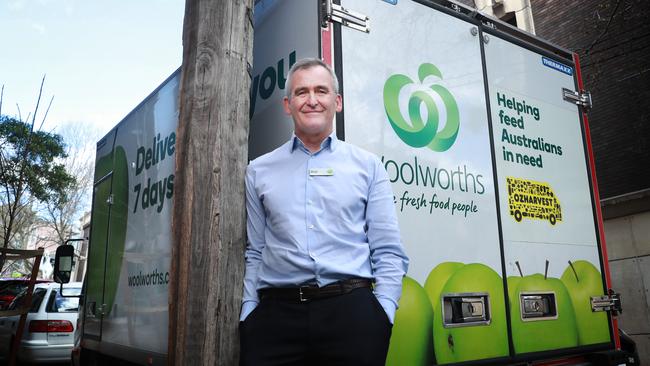
In the last quarter, Woolies’ same-store sales were 2 per cent ahead of Coles, and even more impressive was the fact Banducci was cycling big comparisons with 6.6 per cent growth in the first quarter against just 0.1 per cent for Coles.
The stars were David Walker, who managed 22.3 per cent same-store sales at Big W, and the online fulfilment teams at Dan Murphy and the supermarkets.
Online supermarket sales increased by 100 per cent to $961m, accounting for 8 per cent of total sales against 6 per cent at Coles.
Spare a thought for Coles chief Steven Cain, who has just had a new metric added to his pay formula dependent on online performance, and his much-vaunted Ocado partnership doesn’t roll out until 2023.
He has had to play catch-up for Wesfarmers’ underinvestment in the second half of its ownership, which has provided Banducci with leads in distribution centres and online fulfilment. Due to COVID-19, they happen to be precisely the capabilities needed today.
Wesfarmers owned Coles for a decade from 2008, and in the early years then boss Ian McLeod was more involved in fixing the broken goods he had inherited than adding new space.
He was also helped by Luscombe’s insistence on maintaining supermarket margins around 7 per cent, compared to the 5.3 per cent for Woolworths and Coles’ 3.7 per cent of today, which provided the breathing space McLeod needed to get Coles back into life.
Banducci also uses what he calls co-ed sourcing, which means using outside tricks from the likes of Drive Yello, Sherpa and Uber to get same-day deliveries to customers and maximising the sales windows available. Coles has tended to use its own drivers, saying this ensures better quality.
Banducci is also opening what he calls micro fulfilment centres like the one at Carrum Downs on the outskirts of Melbourne.
The back of the store is a hi-tech distribution centre and the front a regular supermarket.
COVID costs have halved to 1 per cent of sales, which is still ahead of Coles but then again the two operators are at different stages in the journey, with Coles just two years into a five-year turnaround and Banducci playing at the top of his game.
Care for staff pays off
More company bosses are working out that by looking after their staff well they can grow their business, according to an Accenture study called Care to do Better.
COVID-19 has played a key role in accelerating the trend, with more bosses spending more time looking after their people in big and small companies.
Accenture’s Tenielle Colussi said a global survey found 75 per cent of workers believed companies did better but pre-COVID just 35 per cent of managers agreed.
Post COVID this has increased to 50 per cent.
The survey covered 347 companies in Australia and 3200 globally.
The survey said “even amid weak GDP growth, companies that leave their people better off can see modest revenue growth of 5 per cent (average company revenue in 2020 is anticipated to decline by minus 4.7 per cent).”
Better trust works “across the organisation to architect a culture that leaves people ‘net better off’, lifts the business and elevates the broader community — to not only emerge stronger but ultimately create a better future”.
The findings mirror those in a recent study from the Ethics Centre that showed improved ethical behaviour has a measurable impact on economic growth.
Former RBA governor Glenn Stevens noted: “People are not moral vacuums. Organisations should draw on those strengths rather than creating more elaborate rule books.”
The rationale is that an ethical organisation in an ethical society needs fewer rules, which increases activity.
Economist Adam Smith said low trust carried cost. Markets can only be considered free in an ethical market.
The Accenture report focuses on how companies can improve relations with staff and in the process improve company earnings.
Colussi cited Westpac’s decision two years ago to hire David Burrows as its chief mental health officer and Woolworths’ recent appointment of Rob McCartney as chief medical officer as evidence that more companies are heading in the right direction.
The key, she said, was to equip people with the right skills, listen to what people need and act on it, enable continuous learning, use technology to enable flexible work arrangements, champion workplace wellbeing and set and share people metrics.
Colussi, head of talent and organisations at Accenture Australia, cited Accenture’s public goal of creating gender equality at the firm by 2025 as the sort of people metrics that worked.
“People want a sense of belonging, emotional and financial inclusion,” she told The Australian.


